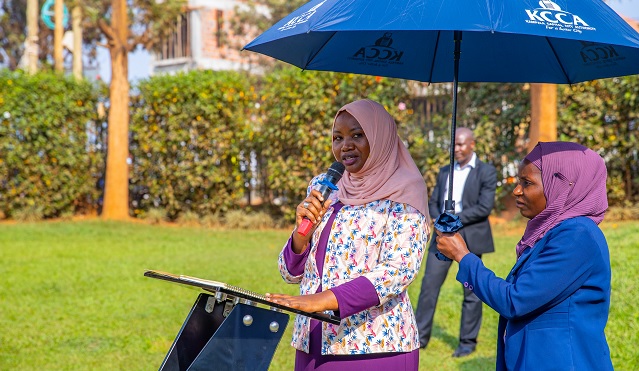
Kampala, Uganda | THE INDEPENDENT | Councillors at the Kampala Capital City Authority (KCCA) have raised alarms over the declining performance of KCCA schools in the Primary Leaving Examinations (PLE).
During a council sitting at City Hall councillors tasked KCCA officials, including the Executive Director, Hajat Sharifah Buzeki, who recently assumed office, to explain the continued decline in the performance.
Mosh Ssendi, a councillor from Makindye East, highlighted that Kampala, as the capital city and supposed centre of excellence, is lagging behind other cities in PLE performance.
Ssendi urged KCCA to equip its schools adequately to enhance learners’ performance. He also pointed out that most KCCA schools are overcrowded, with more than 100 learners in a single classroom scrambling to see one blackboard something that significantly hinders their performance.
According to Ssendi, most KCCA schools lack proper feeding programs and have an imbalanced teacher-to-learner ratio, further affecting learning. He appealed to KCCA to uplift the performance of these schools so that they can serve as model institutions and receive adequate funding.
Hellen Namukwaya, a lord councillor from Makindye East I, stated that the council seeks to establish teachers’ SACCOs in each division to motivate teachers and supplement their modest salaries. During the council sitting, councillors appealed to the Executive Director to increase funding for the education department so that KCCA schools can be fully equipped.
Namukwaya added that most private schools conduct lessons on weekends and during holidays, which is prohibited in government schools. She stressed that this affects learners in KCCA schools, as they do not complete the syllabus on time, unlike their counterparts in private institutions.
Ritah Nakubulwa from Lubaga North expressed concerns over the poor state of KCCA schools, which makes it difficult for learners to compete with those in private schools.
She criticized the government for copying education policies from other countries and implementing them in Uganda without conducting thorough studies or considering local factors, leading to poor performance among learners in Kampala and the country at large.
Hajat Sharifah Buzeki, the KCCA Executive Director, responded by stating that KCCA and the political leadership spent a week analyzing the PLE performance in KCCA schools after concerns were raised.
She noted that the best candidates from KCCA schools in the recently released PLE exams scored six aggregates and were awarded certificates and one million shillings each.
Buzeki acknowledged the declining trend in PLE performance in KCCA schools over the past four years. However, she pointed out that KCCA schools achieved a 95.1% pass rate, compared to the national pass rate of 91%.
She explained that the special council sitting aimed to find ways to enhance the performance of learners in government schools in Kampala.
Regarding the issue of low capitation grants allocated to learners in KCCA schools by the Ministry of Education, Buzeki stressed that the government has been providing only 8,900 shillings per child, compared to 20,000 shillings in other districts.
She revealed that during ongoing budget negotiations, the government promised to increase capitation grants for KCCA schools in the next financial year.
Additionally, she emphasized the need for more school inspectors, noting that currently, one inspector covers 250 schools in Kampala both government and private which is ineffective for proper monitoring.
Councillors and the Central Executive Committee members have tasked KCCA to compile a detailed report within one month, outlining the current status of schools in Kampala, including the state of school buildings, health conditions, and other key factors affecting learners’ performance.
The council also resolved that the report would be presented to Parliament as a basis for demanding increased funding for KCCA schools. Furthermore, councillors tasked the Executive Director, Buzeki, with ensuring that KCCA schools have more teachers, as there is currently a significant staffing gap in schools managed by the authority.
Kampala Capital City Authority manages 79 primary schools and 22 government-aided secondary schools.
****
URN
 The Independent Uganda: You get the Truth we Pay the Price
The Independent Uganda: You get the Truth we Pay the Price



